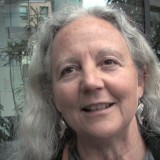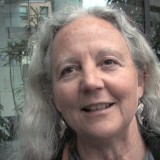From the Courier-Islander – April 20, 2011
For the upcoming May 2 federal election, Vancouver Island North candidates were asked:
Last
December, the House of Commons passed a motion calling for a ban on
crude-oil tanker traffic off BC’s north coast, but the motion was
non-binding and considered likely to be ignored. What’s your position
on allowing oil tanker traffic off the BC coast? What impact would such
a ban have on the Vancouver Island North riding?
NDP Candidate Ronna-Rae Leonard:
Our
coastal life is too important to our economy and our waters are too
rough to risk tanker traffic. The Exxon Valdez disaster and the BP
spill in the Gulf of Mexico demonstrate the devastation that results
from accidental spills. The sinking of the Queen of the North ferry
showed that even with navigational technology, human error can occur.
The
oil and gas companies are far more concerned about their profits than
the B.C. Coast. It is up to us to defend what is ours. A spill would
mean the end of the very basis of our livelihoods and deprive of us of
our most precious resource.
Eight in 10 British Columbians, the
vast majority of coastal First Nations, and the Canadian Parliament all
support a ban on oil tankers on BC’s Coast. Making it law will ensure
future generations do not bear the risk of a major oil disaster.
Conservative Candidate John Duncan:
Our
Conservative party’s number one priority remains the economy, which we
will balance with responsible environmental stewardship. Oil and gas
tankers go into and out of Vancouver every day. Oil and gas tankers
have more than 100 movements a year along the BC coast to service our
coastal industries and communities. Prince Rupert and Kitimat are
increasingly important ports for international trade and their
industrial infrastructure will increasingly resemble the Port of
Vancouver. The Conservative Government has no plans to re-open the 1988
Exclusion Zone on tankers travelling between Alaska and Washington
State on the B.C. Coast and we have no plans to re-open the current
moratorium on offshore oil and gas developments on the B.C. Coast.
Liberal Candidate Mike Holland:
I
believe we need a ban on oil tanker traffic off B.C.’s north coast. A
moratorium was put in place by the Liberal government in 1972 but the
Harper Conservatives refuse to recognize the moratorium, or the
incredible risk to our coastal communities, tourism and fishery
industries that tanker traffic and an oil spill would pose. That’s why I
supported the efforts in the last Parliament by Vancouver-Quadra
Liberal MP Joyce Murray to formalize the moratorium on the shipping of
crude oil in the dangerous inland waters around Haida Gwaii and off
Northern Vancouver Island with Bill C-606, and if elected I will work
in the next parliament to ensure a formal ban is passed into law. As
the moratorium has been in place since 1972 the impact of a formal ban
on our riding would be negligible, but the impact of a spill would be
tragic and irreversible.
Green Party Candidate Sue Moen:
The
Green Party of Canada continues to call for a legislated ban on bulk
oil tankers along Canada’s entire Pacific Coast and supported the
Private member’s bill calling for this, as a significant step towards
protecting BC’s coast. The proposed pipelines that would feed that
traffic have been opposed by over 80 First Nations bands and thousands
of B.C. residents.
Greens propose more marine conservation areas,
saving more boreal forest as a carbon sink and returning resource
management to local communities.
These actions create
opportunities for employment including environmental protection,
reforestation, research, eco-system rehabilitation, and in
non-extractive eco-tourism, and many more. These are sustainable jobs. A
single catastrophic spill — a certainty in the wild waters off our
coast — would devastate all of those jobs.
I don’t want to live in a world where the clean-up of an oil spill is defined as good for the economy.
Read original article





